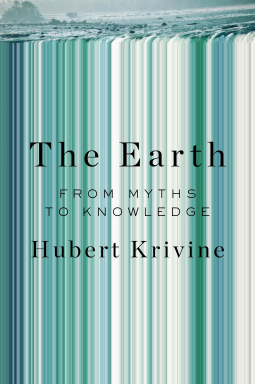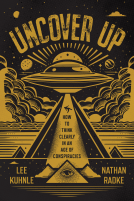
The Earth
From Myths to Knowledge
by Hubert Krivine
This title was previously available on NetGalley and is now archived.
Send NetGalley books directly to your Kindle or Kindle app
1
To read on a Kindle or Kindle app, please add kindle@netgalley.com as an approved email address to receive files in your Amazon account. Click here for step-by-step instructions.
2
Also find your Kindle email address within your Amazon account, and enter it here.
Pub Date Apr 28 2015 | Archive Date Mar 31 2015
Verso Books | Verso
Description
Our planet’s elliptical orbit around the Sun and its billions-of-years existence are facts we take for granted, matters every literate high school student is expected to grasp. But humanity’s struggle towards these scientific truths lasted millennia. Few of us have more than the faintest notion of the path we have travelled.
Hubert Krivine tells the story of the thinkers and scientists whose work allowed our species to put an age to the planet and pinpoint our place in the solar system. It is a history of bold innovators, with a broad cast of contributors – not only Copernicus, Galileo and Kepler, but Halley, Kelvin, Darwin and Rutherford, among many others. Courage, iniquity, religious dogmatism, genius and blind luck all played a part.
This was an epic struggle to free the mind from the constraints of cant, ideology and superstition. From this history, Krivine delineates an invaluable philosophy of science, one today under threat from irrationalism and the fundamentalist movements of East and West, which threaten both what we have attained at great cost and what we still have to learn.
Scientific progress is not a sufficient condition for social progress; but it is a necessary one. The Earth is not merely a history of scientific learning, but a stirring defence of Enlightenment values in the quest for human advancement.
Advance Praise
“Clear and fascinating.” —La Quinzaine Litteraire
“A wonderful reflection on science.” —Mediapart
“An excellent book of popular science, written in a straightforward, accessible style.” —Jean Bricmont, Le Monde Diplomatique
Available Editions
| EDITION | Other Format |
| ISBN | 9781781687994 |
| PRICE | $29.95 (USD) |
Links
Average rating from 11 members
Readers who liked this book also liked:
Alvin E. Roth
Business, Leadership, Finance, Health, Mind & Body, Politics & Current Affairs


















